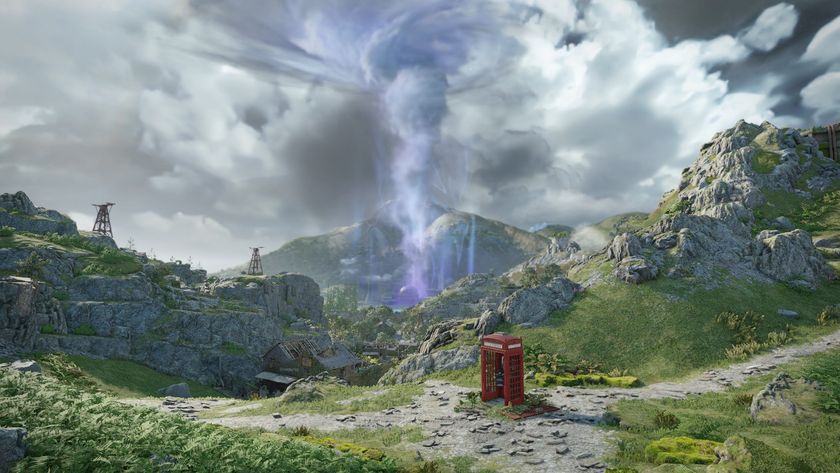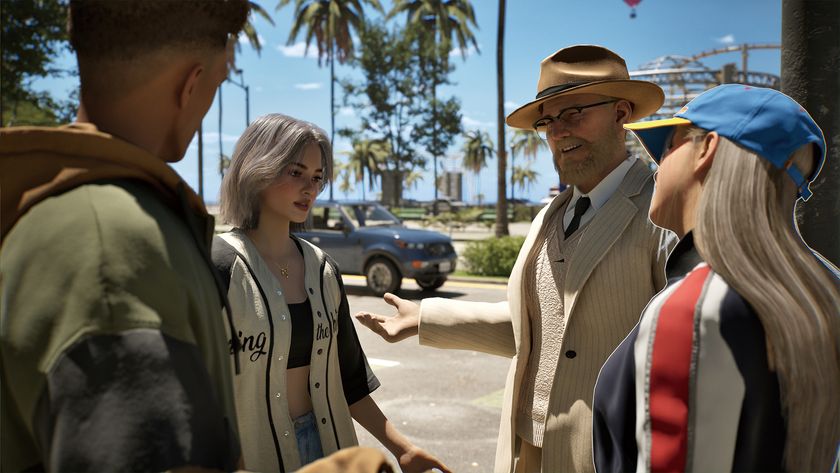Ghostwire: Tokyo is so much more than spooks and spells
Skips the scares to put the life in afterlife
Was it when I had to fight an enemy with an almost Hellraider-esque version of a traditional Japanese mask? Or when a sidequest had me searching the city for a cursed doll? Maybe it was when a cat merchant enlisted me to collect items around the city, or a tanuki needed help finding his friends who had shapeshifted into normal everyday objects, their fluffy tails the only giveaway. Fluffy-tailed Tanukis, cat merchants, cursed dolls, spirits, dogs, and terrifying Japanese masks… It's hard to pinpoint exactly when during the first two hours of Ghostwire: Tokyo I became obsessed with its strange twist on ghostbusting, but I just can't get enough of it.
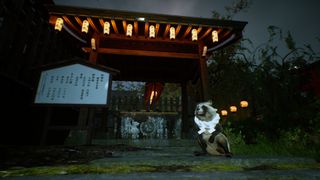
In Ghostwire: Tokyo the big storyline is that the people of Tokyo have been disappeared for nefarious reasons, but once you're out and exploring it, it feels alive with stories and secrets. Ghosts hang sadly in the air, needing help with tasks – errands that vary wildly from one to the next – and the enemies of the game, bad spirits called Visitors, lurk in the streets, ready to fight or be quietly purged with a stealth attack. Tengu, or flying spirits, screech overhead and you can use a grapple to attach to them and fly up to the tops of skyscrapers while black and red corruption seethes across the concrete, needing to be cleared. Best of all, dogs – whose minds you can read – patrol the streets, and will reward you if you feed them. There are cats too but, being cats, they're barely interested in your affection.
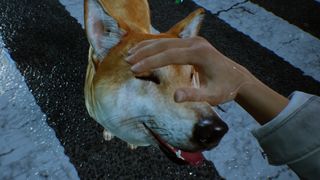
"So I like doggies and kitties," admits game director Kenji Kimura, before proving that insight into his personal life by detailing how even Tango Gameworks studio founder and game development legend Shinji Mikami questions why he likes to use so many "doggies and kitties." He says it's because he loves them so much.
"The reason why they exist in the game is that I do get the sense that sometimes the doggies and kitties can actually see things that we as humans cannot, to sense things that we as humans cannot."
"It's also part of the reality of authenticity. People do have a lot of pets in Tokyo... so if people vanished it's very likely that there would be a lot of dogs in the city that are you know, out there looking for their owners."
Sister act
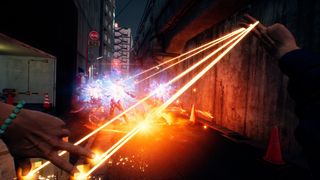
With so much to do, the big narrative drive – that of a population being vanished and condemned to the underworld while your body is possessed by a guy called KK – is almost easy to forget. Sure, your sister has been abducted by some sort of nefarious villain, but this ghost needs me to find a sentient umbrella. I'll get to stopping the ritual at some point, but right now I'm out of dog food. Even better, every side quest, no matter how small, feels like it has a point to it. The ghosts' stories are beautiful little adventures in themselves, small statues boost your ethereal weaving skills, and collecting souls from the skies help you level up.
"The idea that we had for the concept of this game was to recreate the sense of the unordinary lurking within the ordinary," explains Kimura.
Sign up to the 12DOVE Newsletter
Weekly digests, tales from the communities you love, and more
"We wanted to have the player be able to enjoy just sightseeing and walking through the city of Tokyo and getting a sense of the strangeness of the city that it innately seems to have. So we want the player to feel that sense of enjoying the city and also the fun of noticing the spookiness that exists."
The combat, which I had been afraid would require a complex mix of combos and elemental control, turns out to be a blast. You start out with just the power of wind, the game's version of a rapid-fire weapon, that chips away at the Visitor's bodies until their central cores are exposed enough for you to rip them out. The fire attack is more explosive and can be used to deal big damage to one or a group of enemies, while water delivers a closer range, cutting attack that can penetrate shields.
There's also KK's bow, which is slow to draw but a huge help for picking off enemies from afar to improve your odds, taking down flying Visitors, and smashing Corruption crystals to clear your path. You get all these powers early on and spend the rest of the game mastering them, leveling them up, and learning how best to utilize them for certain enemies.
Ghost ride
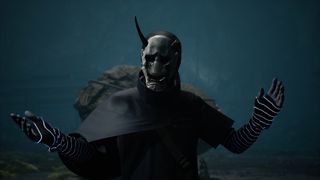
It helps that every enemy is a little slice of nightmare, from headless schoolgirls to faceless men in suits, floating wraiths, and one female spirit with a pair of scissors so large they can only be disguised as Freudian. So far the one I find most unnerving is a prim, feminine enemy who slowly walks toward you, blowing kisses that become deadly floating bubbles. Some are based on traditional Japanese ideas, some are pure fiction, but all of them feel strange and unnerving, without resorting to the shock and gore of survival horror. All are simple to deal with one on one, especially as your powers get stronger and you can start using talismans, that cast short-term effects like stun or decoys, but they come at you in gangs, and love to attack from behind while you're busy with something else.
Kimura's personal favorite enemy is a surprising choice, the small, floating ghost. "Teru teru bōzu is a traditional doll created with a piece of cloth and you put a face on it and hang it outside in the hope that it will stop raining," he says.
"It's something that's supposed to be a fun happy thing. But depending on how you look at it, it can look like a person hanging by its neck, right? If you are in that dark state of mind. I think that's part of the appeal. All of our enemy types follow the same vision of the unordinary lurking within the ordinary."
For a game with barely any (living) people, it's surprising how truly human it all feels. The disembodied spirits that float in blue clouds fret over mundane things like someone leaving trash in their bicycle baskets and repaying debts. The ghosts who ask for help are as ordinary as their problems are fantastical, and even the left behind cats and dogs are a reminder of our connection with the world around us. Your relationship with KK starts as a case of non-consensual possession, but as you work together there's just the beginning of a warmer relationship growing between you, that I expect will develop beyond the early chapters I played.
Ghostwire Tokyo is not at all what I was expecting, it's even better. It's an action-adventure game with an almost open-world style city exploration, magic instead of bullets and bombs, and strange stories lurking around every corner. It might not be horror, but it will stop you sleeping because you've always got one more sidequests to do before bed.

Rachel Weber is the former US Managing Editor of 12DOVE and lives in Brooklyn, New York. She joined 12DOVE in 2017, revitalizing the news coverage and building new processes and strategies for the US team.
